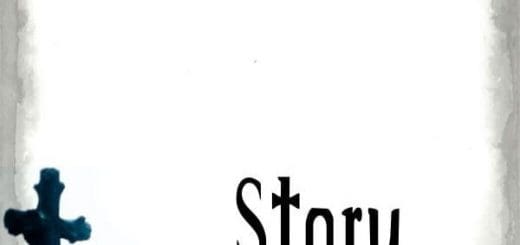Horror Tree presents … An Interview with Bryan Smith
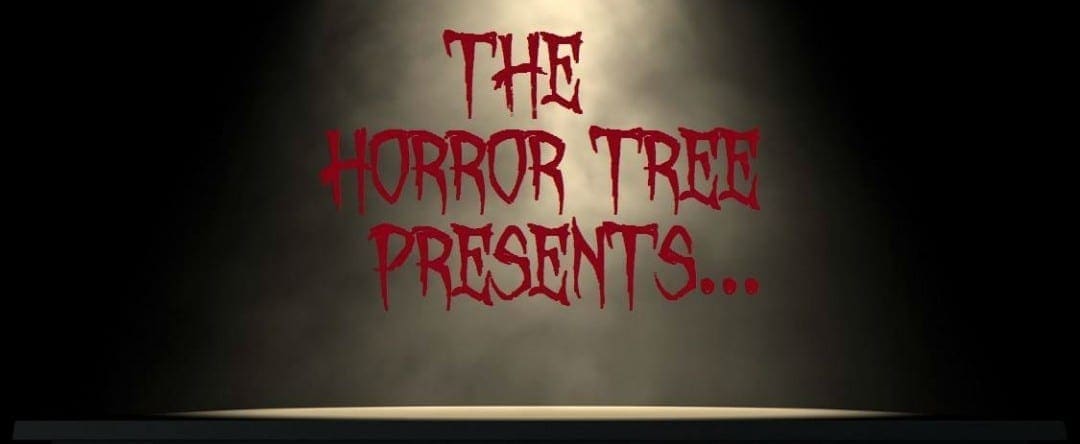
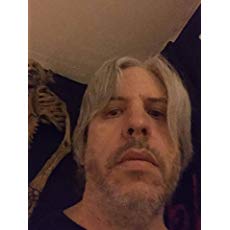 When I received my first Kindle, one of the first three books I purchased was an extreme horror novel titled Depraved by Bryan Smith. I was already a fan of extreme horror, or Splatterpunk as the genre is known, but Smith’s tale terrified me in the same way the original Texas Chainsaw Massacre did and horrified me in the same way the original I Spit on Your Grave did. It was that one-two punch of terror and horror that hooked me and turned me into a fan of Smith’s work.
When I received my first Kindle, one of the first three books I purchased was an extreme horror novel titled Depraved by Bryan Smith. I was already a fan of extreme horror, or Splatterpunk as the genre is known, but Smith’s tale terrified me in the same way the original Texas Chainsaw Massacre did and horrified me in the same way the original I Spit on Your Grave did. It was that one-two punch of terror and horror that hooked me and turned me into a fan of Smith’s work.
For me, the best way to describe Smith’s writing is by sharing a snippet of my Amazon review of Depraved: “Not for the faint of heart or most decent folks, Depraved is pure grind house. It’s the best kind of hard-core horror, because it’s written for fans of the genre, which means no PG-13 cop-out scenes and no easy way out. … Smith thrusts the reader into a gut-wrenching tale of sickening lust and intense brutality where the worst-case scenarios get worse and the twists get more twisted.”
After experiencing Depraved, I devoured my second favorite Smith novel, The Killing Kind, where he creates one of the most memorable characters in horror, the homicidal yet sexy-as-hell Roxie.
Years later, I’m still reading Smith, and the Tennessee author is still consistently cranking out some of the most entertaining reads in horror fiction.
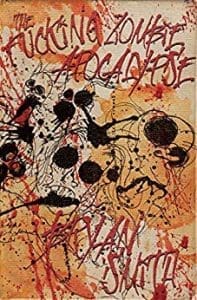 In January, Grindhouse Press released Smith’s latest book titled The F*ck*ng Zombie Apocalypse, which is about a guy trying to save his beloved hamster from his crazy girlfriend during a zombie apocalypse.
In January, Grindhouse Press released Smith’s latest book titled The F*ck*ng Zombie Apocalypse, which is about a guy trying to save his beloved hamster from his crazy girlfriend during a zombie apocalypse.
Smith can relate to loving a pet that much.
“Well, I’m a dog person,” Smith said in an exclusive interview with Horror Tree. “Have been ever since I was very young. I’ve loved all the dogs I’ve ever had like they’re family because that’s what they are to me. They live with you, love you unconditionally, and make life more tolerable in general. I’d do anything I could to save any of the dogs I’ve ever shared my life with, including plunging headlong into a horde of ravenous zombies.”
And Smith knows how to write zombie fiction. The 2014 World Horror Grandmaster Award winner, Brian Keene, said Smith’s 2015 novel Slowly We Rot was “the best zombie novel I’ve ever read.”
I asked Smith why zombies continue to permeate the horror film and fiction landscape and what they symbolize to him.
“Zombies are still popular, of course, but the mania for them that was there for several years seems to have waned recently thanks to over-saturation in all forms of popular media,” Smith said. “Of course, I’ll never get tired of revisiting all the old classics like Dawn of the Dead and Return of the Living Dead, but it’s been a while since anything new in the sub-genre stirred my interest much. It’s always possible I’m simply not aware of good new zombie stuff because I’m not actively on the hunt for it. I’d welcome recommendations for any distinct new and fresh visions in zombie fiction.
“For me, the popularity of zombie books and films stems from a deep social malaise and dissatisfaction with a world and oppressive society that no longer works for too many people. A decay and decline in a social order that only benefits a tiny percentage of the population. The zombie apocalypse scenario is so popular because it typically depicts a sweeping away of all that. A clean slate in which the only imperative is to fight and survive and protect the ones you love. There’s a great appeal in the idea that this is your only responsibility and that you are no longer a slave to a state rule that doesn’t care about you at all as an individual.”
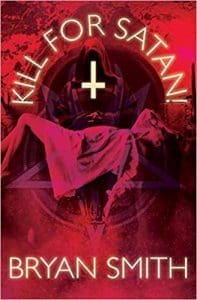 Zombies, though, are a small sample of Smith’s catalogue, which includes more than 30 novels and novellas ranging from Splatterpunk to crime fiction. Smith’s 2018 release Kill For Satan! won the 2019 Splatterpunk Award for Best Horror Novella, and last year’s Merciless should be a contender in 2020. The Splatterpunk Award is a recent creation, first presented in 2018, to spotlight authors of extreme horror.
Zombies, though, are a small sample of Smith’s catalogue, which includes more than 30 novels and novellas ranging from Splatterpunk to crime fiction. Smith’s 2018 release Kill For Satan! won the 2019 Splatterpunk Award for Best Horror Novella, and last year’s Merciless should be a contender in 2020. The Splatterpunk Award is a recent creation, first presented in 2018, to spotlight authors of extreme horror.
“It’s a way of finally recognizing the value in the works of a whole category of talented horror writers who have been systematically ignored by institutions bestowing other horror fiction awards,” Smith said. “I have great faith in the integrity and honor of the Splatterpunk Award jurors, and thus I trust completely in the worthiness of all nominees and winners. For these reasons, the award for Kill For Satan! actually meant a great deal to me. With certain other awards, it’s always felt as if writers have to play the game of schmoozing up to the right people and getting in with the right cliques while paying yearly dues to the organization handing out the award. I’ve never played that game and have no interest in it.”
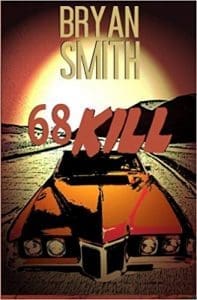 Smith’s wild ride of a crime novel, 68 Kill, was adapted into an award-winning and well-reviewed 2017 film starring Matthew Gray Gubler, one of the stars of the hit TV show Criminal Minds. Classic horror and crime fiction are major influences on Smith’s work.
Smith’s wild ride of a crime novel, 68 Kill, was adapted into an award-winning and well-reviewed 2017 film starring Matthew Gray Gubler, one of the stars of the hit TV show Criminal Minds. Classic horror and crime fiction are major influences on Smith’s work.
“One of my earliest filmmaker influences was John Carpenter,” Smith said. “Halloween was massively influential and led to a whole wave of imitators responsible for shaping my tastes as a young horror fan in the ‘80s. His film The Thing has also had a lasting influence on me. The Friday the 13th movies and the early novels of Richard Laymon were a big part of setting the template for my early horror-writing efforts, but Stephen King was always my favorite writer, my literary idol, and icon. The same is true, of course, for countless other writers and aspiring writers of my generation.
“Then, as I got older, I started reading a lot of crime fiction. Guys like Elmore Leonard, Ed McBain, Richard B. Parker, Donald Westlake, and old pulp noir/detective writers like Gil Brewer, Richard Prather, David Goodis, and Charles Willeford had a subtle influence on books like The Killing Kind, Blood and Whiskey, and 68 Kill. Of all my later film influences, Quentin Tarantino was by far the biggest. He’s easily my favorite director of all time.”
Since a lot of writers visit Horror Tree looking for markets and writing advice, I asked Smith if he had any words of wisdom for authors trying to navigate the publishing world.
“It’s hard to know how to give a solid, informative reply to that, at least for me,” Smith said. “When it comes to my approach to getting published or advancing my career, I’ve never been the most organized or tenacious person. I’ve honestly blundered my way through some of it, while getting fantastically lucky on a few occasions.
“I will say that once I did get some of the handful of big opportunities that came along, I made the most of them while I could. So, I would tell young writers not to take anything for granted. Seize any chance that comes along and put your all into it. Lock yourself in a room and write like your life depends on it. The work comes first, not networking or trying to be a funny guy on social media. Write a certain amount every damn day, make sure it’s something you genuinely enjoy and not just something coldly calculated to aim at some cynical market niche, and then worry about what you can do with it after you’re done.
“If you’re a young writer, trying to see if you can get published traditionally is probably the best way to start. If banging your head against a perpetually closed set of doors becomes too frustrating over whatever period of time feels like enough for you, f*ck it, self-publish and to hell with what any naysayers tell you about that.”
****
LINKS:
Amazon: https://www.amazon.com/Bryan-Smith/e/B001JS7EQA/ref=dp_byline_cont_book_1
Twitter: @Bryan_D_Smith
Facebook: https://www.facebook.com/bryansmith
- About the Author
- Latest Posts
Lionel Ray Green is a horror and fantasy writer, an award-winning newspaper journalist, and a U.S. Army gulf war veteran living in Alabama. His short stories have appeared in more than two dozen anthologies, magazines, and ezines, including The Best of Iron Faerie Publishing 2019; America’s Emerging Science Fiction and Fantasy Writers: Deep South; and Alabama’s Emerging Writers. Drop by https://lionelraygreen.com/ and say hello.

